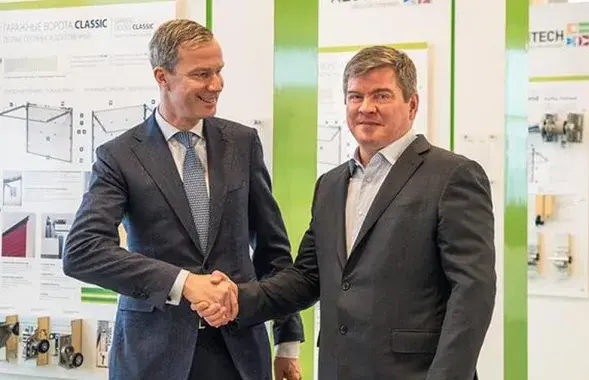Wiegand: Suggestion to lower visa costs already with Belarusian authorities
Gunnar Wiegand explains when Schengen visas will become cheaper for Belarusians and who Europe will have a dialoge with.
Managing Director of Europe and Central Asia Department, EEAS and Eastern Partnership Gunnar Weigand is paying a 2-day visit to Minsk today. He did not plan to meet journalists but he did. The European official started the conversation in a rather unexpected way.
Gunnar Weigand: I have not come to generate news. You will not lose anything if you stop noting down my words. I visited your country at the beginning of the year during one of our attempts to become closer to Belarus in the Eastern Partnership. We are getting ready for the summit in Vilnius now. It will be held at the end of November. We want to achieve some progress in relations with our Ukrainian, Moldavian and Georgian partners in the field of political association and economic integration. The Eastern Partnership means multilateral cooperation between the member states. Belarus is an active participant of the multilateral cooperation in the Eastern Partnership.
However, we have not achieved much in the bilateral relations with Belarus. But we are gradually establishing them. The country can participate in the European Dialogue on Modernization. To be more precise, we have discussed it. I will also meet the other participants of this dialogue: the opposition and experts. We will try to elaborate the right model of participation in these processes and organize interaction between the government and the opposition in this issue.
We were very pleased to see the Belarusian Minister of Foreign Affairs at the meeting of Ministers of Foreign Affaires of the EaP member states in Brussels in July and at the informal meeting in Yerevan this month.
We would also like to achieve progress in another field. He chances are high – the suggestion to lower the Schengen visa cost for Belarusians and reach a readmission agreement has already been sent to the Belarusian government. It would facilitate travel abroad for Belarusians. [The Schengen visa cost may be lowered from €60 to €35. – Euroradio]. We are planning to sign a similar agreement with Azerbaijan in Vilnius. The agreement with Armenia will come into power soon. Belarus is not the only EaP member we have not signed such an agreement with. We are hoping to do it in the future.

— Have you brought an invitation to the summit in Vilnius to the Belarusian authorities like ex-Minister of Foreign affairs Karel Schwarzenberg did before the EaP summit in Prague?
Gunnar Weigand: Unfortunately, it has not happened. Looking back at the situation before the summit in Prague, it may be possible. But we should also look back at the history of the summit and the events that had happened before. [Czech Minister of Foreign Affairs Karel Schwarzenberg brought an invitation to the EaP summit in Prague to Alyaksandr Lukashenka on condition that the President would not go to Prague. – Euroradio]. It may be some other top-ranking official this time. The fact that we expect Belarus to participate is guaranteed. Belarus will be invited like all the other EaP partners. But I cannot comment on the level of the participation. The decision will be made by other high-ranking officials.
— What other representatives of state bodies have you met? What suggestions have you made? What are you planning to suggest? Have you mentioned the problem of political prisoners?
Gunnar Weigand: I had a productive meeting with deputy Minister of Foreign Affairs Kupchyna. Unfortunately, I did not have time for a full-fledged conversation. I have 2 meetings with European Ministers appointed for today and one – for tomorrow. The main goal of my visit to Belarus was finding out to what extent Belarus could participate in the Dialogue of European Modernization. I also reminded about Europe’s official position – political prisoners need to be released and acquitted in order to normalize Belarus-EU relations, dialogue and cooperation.
— The official Minsk said that it would not take part in the Dialogue on Modernization suggested by the EU. Have you suggested anything new that could make the Belarusian government change its attitude to the EU’s initiative?
Gunnar Weigand: We are working on it. We understand that the authorities are very sensitive when it comes to all the issues.
Photo: www.mediamax.am, dw.de



















